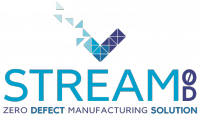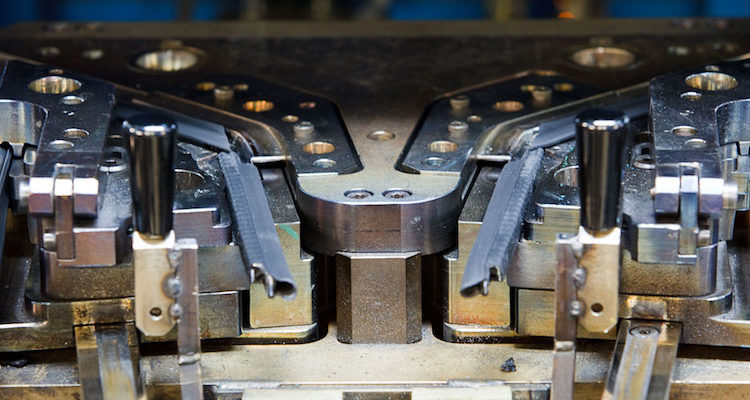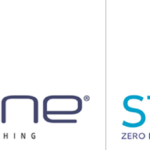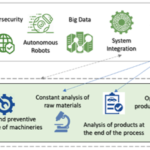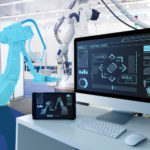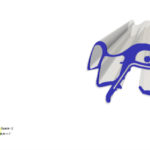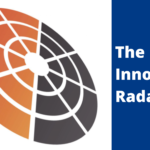STREAM-0D: prediction and self-adaptation in the extrusion process
The extrusion of profiles is, for many reasons, a complex process: overcoming this complexity would result in a remarkable advancement in the manufacturing process. STREAM-0D project is tackling this challenge by implementing technologies able to monitor and control different aspects of the process. Standard Profil, one of STREAM-0D end-users, provides an insight on this subject.
The extrusion process of profiles needed to make sealing systems is by its nature very complex, being a procedure subject to great variability; this inconstancy is caused by the fact that, during the forming process, no tool able to control the profiles while they leave the extrusion head is involved. The implementation of such control is highly complicated due to the unstable features of the materials that are used.
For each of the different equipment involved in the extrusion line, there is a specific local control system based on PLCs or industrial PCs; in addition, there is also a SCADA (Supervisory Control And Data Acquisition) system for the supervision of the extrusion process: it allows to acquire real-time data from the process – but not to perform its control.
Profiles variability monitoring can be certainly carried out through a Statistical Process Control (SPC); unfortunately, as a consequence of the lack of sensors for automatic acquisition in real-time of such features, this procedure can be performed only after the collection of samples and the following lab analysis.
The integrated and autonomous control of the extrusion process requires therefore the implementation of a specific solution, able to overcome these difficulties and introduce a new approach to manufacturing in general.
A predictive and self-adapting control system
STREAM-0D project’s approach to monitoring and control of the extrusion process is highly innovative. Taking advantage of:
– the existing facilities for plant data collection
– the synchronization of the process parameters with the measurable features of the product
– the development of specific sensors able to measure some of the product features in real-time
the project advanced towards the development of Data-Driven Models (DDM).
DDM have been complemented by Knowledge-Based Models (KBM): these models, after the characterization of materials and the execution of a systematic series of simulations, have eventually led to the development of Reduced Order Models (ROMs), also able to represent the dynamics of the extrusion process.
These models, which are complements of each other, will firstly allow the development of a predictive system applicable to the extrusion process and, secondly, the development and the implementation of a self-adaptive control system.
The predictive system is meant to be a support tool for the plant personnel, that will be therefore able to assess the process behavior and analyze in advance the impact of specific changes. This would be particularly useful during the launch of new profiles: in fact, the system allows a considerable reduction in terms of time, avoids extra costs for materials and guarantees a certain level of quality by making possibile the analysis of the effects of potential product modifications.
The development of the self-adaptive control system aims to introduce the capability to adjust the extrusion process according to the variations that might occur, therefore ensuring the high stability of the entire extrusion process.
STREAM-0D will clearly contribute in improving quality, control and stabilization for the extrusion process and for any other process in which the solution will be implemented. The project also represents a clear example of the development of Cyber-Physical Systems (CPS) within the new paradigm of Industry 4.0.
Check Bits of STREAM-0D’s previous contributions by STREAM-0D partners:
- Ep. 1 – ITAINNOVA – “Simulation for zero-defects manufacturing”
- Ep. 2 – ITAINNOVA – “STREAM-0D End-users”
- Ep. 3 – DAY ONE – “Exploitation of a European project: how to start and key activities”
- Ep. 4 – LMS – “Industry 4.0 and zero-defects manufacturing: an insight on a new industrial era”
- Ep. 5 – IES – “Cloud data management: what is it all about?”
- Ep. 6 – ECN – “Reduced-Order Models, augmented knowledge”
- Ep. 7 – STAM – “Discrete manufacturing: model-based process optimization and control”
- Ep. 8 – Fersa Bearings – “Temperature influence in bearings manufacturing”
Follow STREAM-0D on:
